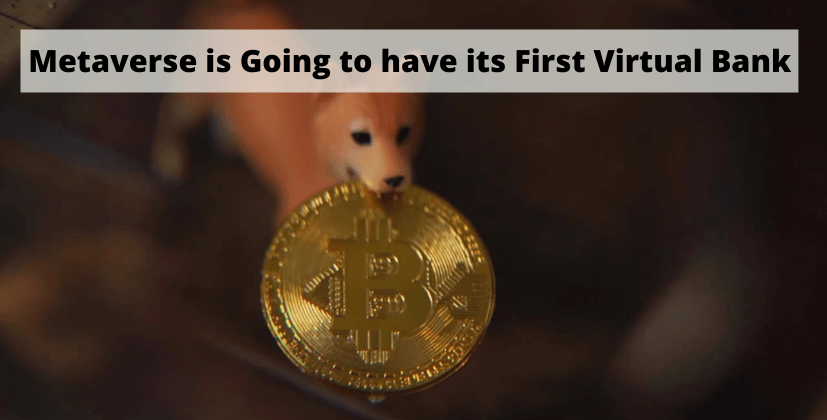Visitors to Decentraland which is a virtual shared world based using the Ethereum blockchain is able to check out JP Morgan’s “onyx lounge” at Metajuku mall.
In the bank’s virtual lounge named after Onyx the bank’s blockchain unit, customers can purchase online plots of land using the non-fungible currency (NFTs) as well as purchase other items using cryptocurrency.
JP Morgan reportedly rolls out the royal treatment to its guests by greeting visitors with a digital image of the head of the company Jamie Dimon and a roaming Tiger.
The bank also has released an analysis of the new virtual world and expects it to expand into a $1 trillion opportunity.
Why do we require traditional banks in the metaverse?
While acknowledging that metaphysics is at its infancy The bank is able to see economic potential in every pixel in the universe of virtual reality.
“Imagine you own an online avatar and would like to change the clothes you wear, you’ll be able to purchase limited-edition, digitally-branded clothing you choose from a virtual showroom,” the report said.
“Or you can create your own small-scale firm, such as an art gallery, where you showcase your most current and impressive collection or even an online exclusive club.”
The bank is predicting strong links between the virtual and physical worlds, and has suggested that the viability in the virtual world “is dependent on a stable and flexible financial system”.
“We believe that the virtual gaming environment (each virtual world has its own GDP, the population as well as in-game currency and assets) is akin to the current global economy.
“This is the place where our core competencies, which have been in use for decades, in cross-border payment and foreign exchange, financial creation, trading and safekeeping, as well as our consumer footprint at scale, can play an important part within the world of metaphysics.”
It has identified some areas to focus on, such as scaling the metaverse across multiple currencies as well as payment methods.
Other companies from the metaverse
The distinction between the real and virtual realm is becoming blurred. The fast-food chain Mcdonald’s is one example. McDonald’s has suggested ordering a hamburger in an online restaurant and being able to deliver it to you in the real world.
Panera Bread also recently filed trademark applications to ensure its position in the digital world along with other businesses like sports-related brands Nike and US retailer Walmart.

